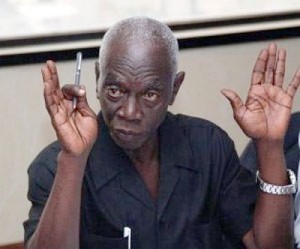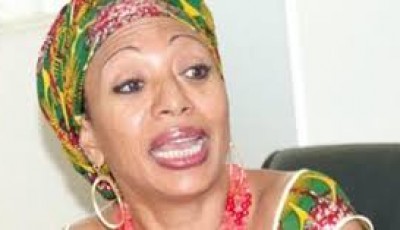Warning: Undefined array key "dirname" in /home/anapuafm/public_html/wp-content/themes/anapuafm/include/plugin/filosofo-image/filosofo-custom-image-sizes.php on line 133
Warning: Undefined array key "extension" in /home/anapuafm/public_html/wp-content/themes/anapuafm/include/plugin/filosofo-image/filosofo-custom-image-sizes.php on line 134
Ghana Needs Electoral Reforms – PPP.
 The Progressive People’s Party (PPP) was the first political party to write to Dr K. Afari-Gyan, Chairman of the Electoral Commission (EC)on the 11th December, 2012, calling for urgent reforms in our electoral process and system as a result of serious lapses that came to light, following the declaration of the 2012 election results. Up until this day, the EC has neither acknowledged receipt of our letter nor hasit agreed to meet us to address concerns raised in our letter.
The Progressive People’s Party (PPP) was the first political party to write to Dr K. Afari-Gyan, Chairman of the Electoral Commission (EC)on the 11th December, 2012, calling for urgent reforms in our electoral process and system as a result of serious lapses that came to light, following the declaration of the 2012 election results. Up until this day, the EC has neither acknowledged receipt of our letter nor hasit agreed to meet us to address concerns raised in our letter.
Instead, the EC has set up a 10-member working group to scrutinise a raft of proposals submitted to it for electoral reforms, albeit including the PPP’s proposals aimed at amending existing laws, administrative procedures and arrangements ahead of 7th December, 2016 general elections.Incredibly, when it came to setting up a Committee to address the blunders that raised the eyebrows of Ghanaians, the EC side-lined the very Progressive People’s Party (PPP) that was instrumental in calling for electoral reforms as far back as 11th December,2012, well before the Supreme Court added its voice pursuant to ruling in favour of President Mahama as the winner of the disputed Presidential elections of 7th December, 2012 against Nana Addo Dankwa Akuffo Addo of the New Patriotic Party (NPP) in October,2013.
LAPSES IN 2012 ELECTION RESULTS
The fact that we of the PPP did not tow the NPP’s line to go to court to dispute the 2012 election results did not mean that we accepted the results as declared by the EC. We made this position clear in our letter to the EC of having identified serious lapses in the voting, collation and declaration of Presidential and Parliamentary resultsduring 2012 general elections. We found theanomalies very disturbing as they indicated a real likelihood of compromising the integrity of the entire 2012election results and future ones as well if the lapses were not tackled head-on.Huge disparities were recorded at Assin South polling station and these couldn’t be human errors as the PPP was initially assigned 134 voteseach for both the Presidential and Parliamentary candidates.Upon a protest by Mr. Kofi Baidoo, PPP’s Parliamentary candidate for Assin South a recount took place and our Parliamentary candidate’s vote count was confirmed at 1,487, a significant jump from the originally declared figure of 134 and the votes for our Presidential candidate( Dr. Papa Kwesi Nduom) also turned out to be521 and not 134.Clearly there must have been a concerted conspiracy to steal Progressive People’s Party (PPP) votes as we were new on the block and we must have taken the brunt of massive vote-rigging that we never anticipated could take place because we put our trust in the EC’s officials.
With the gripping narrative of PPP’s predicamentabove, there is the need for reform of our existing structures to ensure that effective control mechanisms were put in place to guard against abuse by officials of the Electoral Commission who would compromisetheir positions for one personal gain or the other. The general elections having taken place at 26,002 (twenty-six thousand and two) polling stationsmade it virtually impossible for us to have verified the accuracy of the figures at the remaining 26,001 polling stations within a short period of time to ensure that the Assin South experience was not replicated elsewhere. We therefore chose the interest of our country before that of our party and that was the reason we simplycalled for reforms in our electoral system to ensure freer and fairer elections in future elections.
NPP COURT ACTION
The New Patriotic Party (NPP) decided to go to court as they also had no confidence in the results declared after the general elections. Around 13th December, 2012, I represented my party (PPP) at SKYY TV and Radio stations at Agbelemkpe in Accra and made the PPP’s position clear that we were not going to court and would instead call for reforms in our electoral system for future elections . The reforms we are clamouring for include the need for the EC to ensure strict compliance with the provisions of the Political Parties Law to the letter, in the interest of free and fair elections at future elections.
REFORMS IN ELECTORAL PROCESSES AND SYSTEMS
The Electoral Commission did not consider it necessary to re-check the provisional results to ensure accuracy of the figures before declaring a winner in the presidential election. Re-checking of the figures would have prevented the protracted and the most expensive general election ever held in Ghana as the Supreme Court hearing that lasted over 8 (eight) months to reach a decision on the winner of the disputed 2012 Presidential election. The reasons behind the haste with which the EC declared the election results is a million dollar begging question that may be answered in the future and the only one person privy to the reasons would trickle down to the Electoral Commissioner when he writes his memoirs in his retirement and that may provide the missing puzzle piece. The Political Parties Law requires all parties to be national in character, have offices opened in at least two-thirds of all districts in the country, have officers elected at the constituency, regional and national levels under the supervision of the EC and provide their financial reports 6 (six) months after the general elections. Clearly there is still a lot of work to be done and we urge the EC and his officers to be competent and not chaotic in ensuring that all registered political parties comply with the provisions of the Political Parties Law to the letter before they participate in future elections.
The Electoral Commission has denied us (PPP)the opportunity to meet them to discuss our concerns and to make matters worse, there are major flaws in their setting up of the Electoral Reforms Working Group as they have allocated only 10 seats to the 26 political parties in the country to serve on the working group. The 10 (ten) seats were allocated thus; 2 (two) members each for the NDC; NPP; CPP and YES Party and only 2 (two) members have been invited to represent the remaining 22 (twenty-two) political parties, including the Progressive People’s Party (PPP) that came third behind the NDC and NPP and is also the second largest opposition party and also the third largest political party in Ghana. The impunity with which the Electoral Commissioner has scorned the remaining 22 (twenty-two) political parties by allocating only 2 (two) seats to them on the Working Group in forms us that he has reached his nadir and it goes without saying that there is no huge confidence in Dr Afari-Gyan and his Electoral Commission’s reasoning with the political parties.
One is not attempting to play political games here but I am calling for an urgent review of political party representation on the Working Group by allocating 1 (one) seat for each of the 26 (twenty-six) registered political parties in the country to ensure that equitable representation of all political parties on the Working Group in line with principles of democracy.



